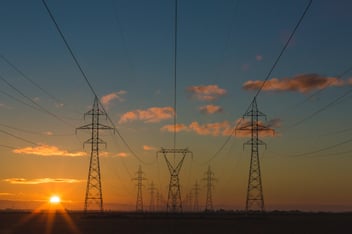The IoT Revolution
Intelligent MEP systems are driving sustainability by optimising resource consumption, minimising environmental impact, and contributing to a more sustainable future. These systems play a crucial role in creating buildings that are energy-efficient, environmentally responsible, and capable of supporting a sustainable lifestyle.
These HVAC Systems provide real-time energy management and a smart algorithm, so your facility isn’t dependent on pre-programmed thermostat settings that don’t adjust according to the conditions.
Predictive HVAC systems powered by AI learn user’s preferences and occupancy patterns, automatically adjusting heating and cooling to optimise comfort and minimise energy waste.
These centralised platforms seamlessly control everything from HVAC, lighting control and environment, water management to security and entertainment systems. They gather data from various IoT sensors and devices, providing real-time insights and centralised automated control. Studies, according to Energy5 , have shown that schools implementing energy-efficient HVAC controls have the potential to reduce heating and cooling costs in schools by up to 20-50%, while hotels can boost guest satisfaction by 20% through personalised environments and on-demand services according to a Skift report.
The benefits of IoT in MEP extend far beyond energy savings though and include:
- Enhanced air quality: sensors monitor CO2 and other pollutants, triggering ventilation systems to maintain healthy indoor air quality to avoid the spreading of diseases which can, in turn, lead to a reduction in student absenteeism.
- Improved water management: smart irrigation systems optimise water usage for landscaping, saving hotels and residences up to 15-20% on their water bills according to Energy5.
- Proactive maintenance: sensors continuously monitor the health of equipment, predicting potential failures and preventing costly breakdowns.
By integrating these intelligent technologies, MEP systems become more than just functional necessities; they transform into proactive companions that optimise resource consumption, minimise environmental impact, and contribute to a more sustainable future. Schools, hotels, and residences across the region can leverage this revolution to reduce their energy footprint, foster healthier environments, and operate more efficiently.
The current IoT revolution is just the beginning. As technology continues to evolve, we can expect even more innovative solutions to emerge. Imagine buildings with Human Neuro and biometric linked auto control systems, robotic solutions, and advanced management systems for minimised environmental impact.
The possibilities are endless, and the future of construction is undoubtedly smart.
.png)














